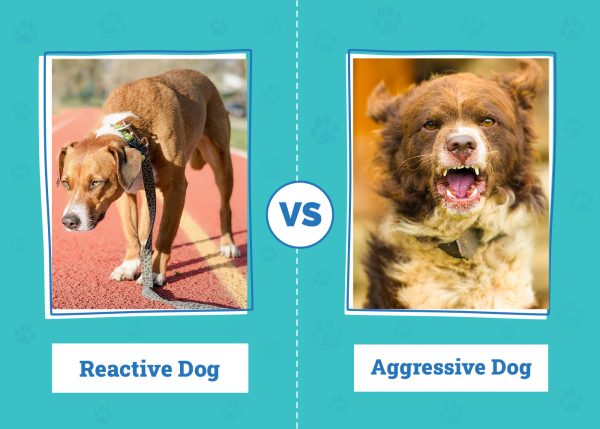In this article
View 3 More +When you’re serious about raising a purebred dog, the assurance of a kennel club registration is impossible to ignore. In the U.S., breeders and owners have several registry options, the most notable being the AKC, CKC, and UKC. But with each having unique regulations and benefits, some can be more valuable than others, depending on your goals.
For many discerning adopters, the distinction can be significant. We’ll break down the differences between the top breed registries so you can better evaluate breeders and make the best choices for you, your family, and your dog.

At A Glance
- Largest purebred registry in the U.S.
- Founded in 1884
- Largest purebred dog registry
- Only registers purebreds with AKC papers
- Partners with national breed clubs
- Hosts shows, sports competitions, and educational events
- Founded in 1991 by breeders
- Provides owners with personalized support and training resources
- Registers purebred dogs from other registries and mixes
- Will register some purebreds without papers
- Sanctions member-organized events
- Founded in 1898
- Second largest purebred registry in the U.S.
- Awards “Total Dog” titles for all-around excellence
- Family-friendly events focused on the dog-owner bond
- Hosts and licenses numerous hunting dog and sporting events

American Kennel Club
Founded in 1884, the American Kennel Club is the USA’s largest non-profit dog registry and widely considered the gold standard for registered purebred dogs. The AKC is a hub for over 5,000 member clubs and affiliates, including the nation’s oldest kennel club and host of the Westminster Dog Show, the Westminster Kennel Club. Broadly, the AKC exists to promote responsible breeding, public education, and canine health and welfare.
What Does the AKC Do?
The AKC keeps pedigree records and promotes breeding around standards worked out with the various breed parent clubs. It only allows breeds with organized national clubs and currently accepts registrations from 200 breeds. Dog shows traditionally focused on conformation. Over the years, the AKC has expanded into over 22,000 events. Professionals can participate in obedience, agility, rally, and many skill-based trials to showcase all that makes their dogs unique.
With funding through registrations, sponsorships, and events, the AKC runs programs to promote responsible breeding, owner education, and canine compassion nationwide. Its services and institutions include:
- Kennel inspections to ensure compliance and improve canine welfare
- The AKC Canine Health Foundation for funding medical research
- DOGNYsm: A fundraising program for canine search-and-rescue groups
- The Canine Good Citizen certification program evaluates and certifies dogs for manners and is a prerequisite for many therapy dog groups and advanced activities
- Scholarships for veterinary students
- The AKC Museum of the Dog in NYC
The AKC supports potential owners with Meet the Breeds events where dog lovers can interact with different breeds first-hand. Recently, the online Marketplace opened to connect people with AKC-registered purebreds and help them find the perfect dog.
What Are the AKC’s Registration Requirements?
Only dogs within AKC-recognized breeds may register to compete in the full array of AKC events. For purebreds to register, dogs must come from registered litters and have AKC-registered parents. The AKC also has a mechanism to research pedigrees of dogs from other domestic registries. If they receive documentation and find an unbroken lineage to AKC-registered dogs, they can register the dog.
Although the AKC’s stud books are closed, newer breeds maintain temporary open registration. Dogs with other accepted registries may apply. Many select breeds with open registrations can transfer their UKC registration to the AKC until a set deadline. It does not approve dogs with only CKC registration.
The AKC can also register dogs in their closed books with three-generation pedigrees from limited alternate registries, including the Field Dog Stud Book and the Masters of Foxhounds Association.
What Are the Benefits of AKC Registration?
The AKC’s reputation and strict registration requirements make it a status symbol for breeders and owners. AKC-registered puppies give breeders a selling advantage, letting them price their dogs higher. For owners, it provides peace of mind that their dogs are of genuine breed stock while giving them access to thousands of competitive events and education opportunities nationwide.
Can Mixed Breeds Register with the AKC?
Only purebreds with verifiable pedigrees can register with the AKC. But almost any dog can become part of the organization in some fashion. Unregistered spayed and neutered purebreds can participate in the Purebred Alternative Listing. The PAL provides benefits like an official certificate, a complimentary vet visit, and 30 days of pet insurance coverage. More importantly, it opens the dog to various AKC events, ranging from agility and coursing trials to breed-specific events like earth dog trials and herding tests.
Though unable to compete in conformation or breed-specific events, mixed breeds can join the AKC through the Canine Partners Program. Dogs in this program can compete in agility, rally, and a handful of other activities and earn certifications in disciplines like therapy and search-and-rescue.

Continental Kennel Club
Not to be confused with the AKC’s northern counterpart, the Canadian Kennel Club, the CKC is the Continental Kennel Club, an international registry operating in all 50 states and 30 foreign countries. A group of breeders founded the club in 1991 to maintain genetic diversity within breeds and promote healthier dogs. The club currently records dogs from over 450 breeds.
What Does the CKC Do?
The CKC gives owners of all dogs an inclusive place to cement their dog’s legacy, maintain secure pedigree and championship records, and provide proof of ownership. It offers in-depth education through its Canine Care and Training Program, a monthly newsletter, and other resources.
Dog owners can register their dogs and receive unique benefits, including a 30-day insurance plan, microchip kits, training materials, and access to the CKC’s Ages & Stages Training video series. As their dogs grow, the CKC provides customized support and discounts with partnering businesses to help owners save on supplies.
Breeders receive additional benefits, including extra-convenient registration and discounted rates. The CKC’s website hosts online puppy advertising, giving breeders a national presence to market their litters. The Preferred Breeder’s Program rewards those displaying the highest standards and improvements in breeding with special recognition, website advertising, and newsletter features.
Although it will sanction events run through members and affiliates, the CKC doesn’t host them. As it does not partner with national breed clubs, the CKC publishes its breed standards, generally aligning them with those of other clubs.
What Are the CKC’s Registration Requirements?
The Continental Kennel Club focuses keenly on promoting the health of all breeds through genetic diversity. Unlike the AKC, it maintains an open registry. The standards are more inclusive, allowing more colors and general types for each breed to create a broader pool. It also fully accepts dogs from several other breed registries and kennel clubs, including the AKC and UKC.
A crucial distinction between the CKC and other kennel clubs is its approach to non-papered dogs. Through the Picture and Witness (PAW) program, owners can register their dog as a purebred even if they don’t have all the standard documentation. Owners submit an application, photos of their dog, and signatures from two witnesses attesting its purebred status. Specialists with the CKC then determine whether the dog qualifies based on its type and health condition.
What Are the Benefits of CKC Registration?
The CKC gives all responsible owners and breeders an affordable, inclusive option to record their lines. Members enjoy community benefits even if they don’t meet the stricter paperwork requirements of the AKC or UKC. Registration is easy. But the CKC also strives to promote authenticity, canine welfare, and responsible ownership. It maintains a strict code of ethics and performs in-depth investigations when a dog’s parentage or a kennel’s practices are questionable.
The CKC has more lenient registration rules than most, especially considering its PAW program. For many owners and breeders, this has given it a poor reputation. Some see it as a haven for puppy mills and its registrations as a way to scam uneducated owners.
The CKC discusses these concerns on its website, noting its position as a leading registry and strict policies for members. Regardless of the breeder’s quality, CKC certification generally doesn’t carry the same value as AKC or UKC registrations.
Can Mixed Breeds Register with the CKC?
Although the CKC has a separate non-purebred registration option, it provides the same benefits as it would for a purebred. The club decides which designer dogs it will recognize. If accepted, dog owners enjoy record-keeping services, training resources, and all the gifts coming with registration.

United Kennel Club
The UKC, United Kennel Club, emerged in 1898 in Kalamazoo, Michigan. Registering dogs from all 50 states and 25 foreign countries, it promotes itself as the world’s largest all-breed performance-dog registry. Chauncey Zachariah founded the club, currently the country’s second-largest registry, to celebrate the working dog concept. Now called the “total dog,” the philosophy highlights performance in sports and training and the value of the dog-owner bond.
What Does the UKC Do?
The UKC is similar to the AKC in its focus on preserving purebred records, educating the public, and partnering with clubs to run dog shows and sporting events. But while the AKC prioritizes form above all else, the UKC’s programs celebrate the entire package of looks, physical skill, and intelligence. Events concentrate on performance qualities rather than conformation, with hunting skills taking a particular focus. Some of the sports unique to the UKC include:
- Weight pull
- Dock jumping
- Coonhound, Hunting Retriever, Cur/Feist, and Beagle hunting events
- Shed hunting competitions
Conformation is a UKC event, but the club’s top prize is the Total Dog award. Highlighting the club’s philosophy of all-around excellence, the Total Dog rewards those who succeed in the show ring and at least one performance event.
Another essential distinction is the UKC’s emphasis on the fun, family-oriented side of dog competition. Programs are relaxed and friendly, and to promote owner engagement, professional handlers are not allowed at events.
What Are the UKC’s Registration Requirements?
The United Kennel Club offers full registration to purebred dogs with UKC pedigrees and those registered with select alternate registries. For many breeds, the UKC accepts registration from national names like the AKC, Britain’s Kennel Club, and the Canadian Kennel Club. It does not accept dogs registered with the Continental Kennel Club.
What Are the Benefits of UKC Registration?
The UKC benefits breeders and owners. Breeders can advertise in UKC publications and make themselves available through the Find a Breeder option on the UKC’s website. Registrations give merit to a dog’s purebred status, helping the breeder’s reputation with buyers.
For owners, the community and support are essential benefits. UKC events are an excellent bonding experience for dogs and owners. Some offer financial incentives, and all provide owners a sense of pride with their participation and chance to earn titles.
Can Mixed Breeds Register with the UKC?
The UKC maintains a separate registration for mixed breeds, non-recognized breeds, and purebreds without a known pedigree. The Performance Listing encompasses all dogs that don’t meet breed standards, allowing them to participate in events. But it doesn’t record pedigrees or offer breeding rights.

Conclusion
Which registry is right for you? While your pet’s pedigree may limit your choices, each club features distinct benefits, philosophies, and communities to attract different dog lovers. You can register with one or multiple clubs, or don’t register your dog with any. The best choice comes down to your values, goals as an owner or breeder, and unique outlook on responsible breeding and dog ownership.



















